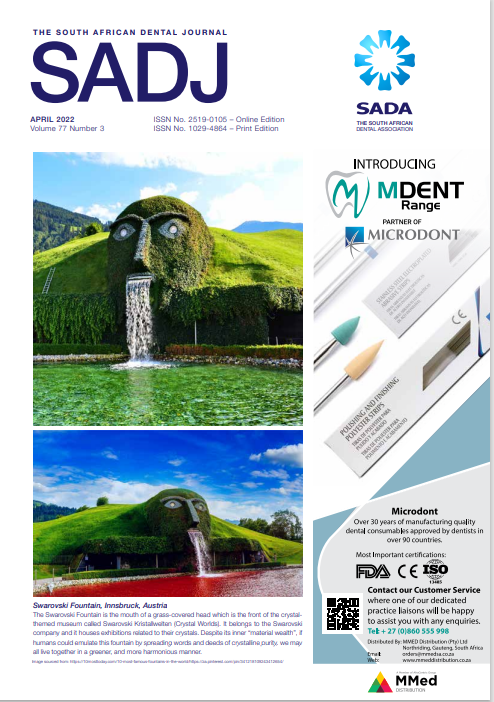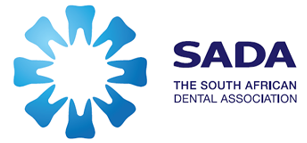Special-IST versus Special inter-IST
DOI:
https://doi.org/10.17159/2519-0105/2022/v77no3a8Keywords:
rationalisationAbstract
Dentists who wish to specialize in a specific discipline have to undergo and complete a rigorous, structured and extensive postgraduate academic and practical training programme, and pass all the requisite exams. Only then can they be registered with a regulating professional body and be recognized as such in that field. Thereafter their scope of practice becomes limited to that specialty alone. This differs from general dentists, who are not restricted in their scope of practice, but may have limitations to the
extent of their capabilities. They may choose to upskill themselves through attendance at short courses, hands-on training workshops, informal study groups, dental company workshops or even YouTube videos. Unlike the trainee in a formal institution, this is unstructured and outcomes are unspecified, yet some of these practitioners then market themselves as specialists in these fields. While the Health Professions Council of South Africa (HPCSA) has set out a list of core ethical values and standards for good practice,
there are no regulations enforcing the need for these practitioners to undergo and pass HPCSA recognized examinations to assess their capabilities, knowledge and skill in these modalities. This opens the profession up to risks of practitioners contravening a number of core values and standards expected of trusted professionals and can mislead and put the general public at risk. This paper aims to
explore if regulation of this type of practice is required, who should be allowed to offer additional training to dentists, and who should be regulating the trainers.
Downloads
References
HPCSA, Ethical guidelines for good practice in the health care professions. Accessed at: https://www.hpcsa. co.za; www.google.com/ search?q=hpcsa+booklets+- +specialist+qualitifcations&rlz
American Dental Association. Section 5. Principle of veracity (truthfulness). Accessed at: https://wwwada.org/en/about-the-ada/principles-of-ethics-code-ofprofessional-conduct/veracity. Accessed on : 24-10- 2016
Sykes LM, Vally Z, Evans WG. Practicing beyond your expertise – Part 10. Who’s to blame, who’s to name? SADJ 2017, 12; 5. 230-233
Dental specialties and subspecialties. Accessed at: https://www.britannica.com/specialties//dentistry/ ancillary-dental- fields. Accessed on: 13-03-2022.
Online Medical Dictionary. The definition of treatment. Accessed at: medical-dictionary.thefreedictionary.com/ treatment. Accessed on: 01-03-2022-03-21
Downloads
Published
Issue
Section
License

This work is licensed under a Creative Commons Attribution-NonCommercial 4.0 International License.





.png)